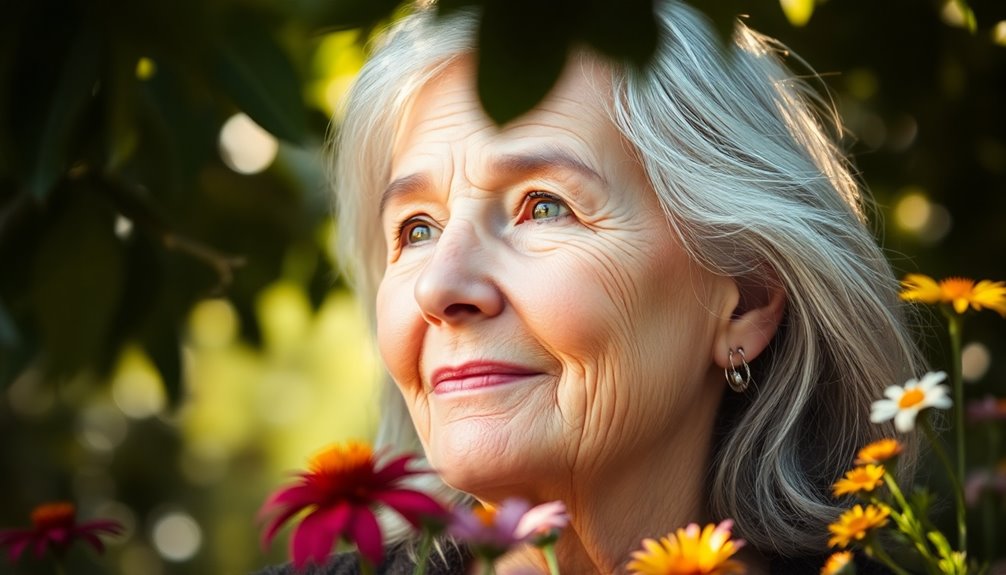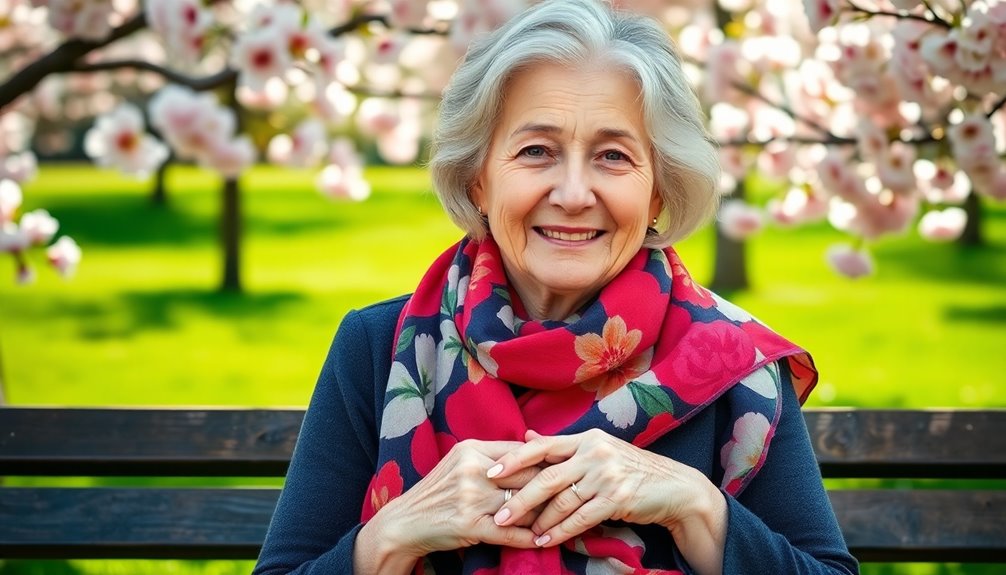As I've navigated life as a woman over 50, I've often felt invisible in social situations. It's disheartening when I'm ignored in conversations or overlooked by waitstaff. I know I'm not alone in this struggle; many of us grapple with feelings of exclusion due to societal perceptions of aging. But I've also discovered ways to combat this invisibility. Connecting with other women like me and building supportive communities can empower us. By sharing our stories and forming genuine friendships, we can reclaim our presence in society. If you're curious about strategies to combat these feelings, there's much more to explore.
Key Takeaways
- Women over 50 often experience feelings of invisibility due to social exclusion and age-related stereotypes.
- Fear of asserting oneself can lead to diminished visibility and emotional distress in older women.
- Building community through shared experiences and intergenerational connections combats feelings of isolation and enhances belonging.
- Engaging in small gatherings fosters deeper conversations and relationships, improving emotional well-being.
- Addressing societal perceptions and embracing personal stories can reshape views on aging and empower older women.
The Experience of Invisibility
As a woman over 50, I often feel like I've slipped into the shadows in social settings. It's disheartening when I notice waitstaff ignoring my order or when conversations seem to swirl around me, leaving me out.
I find myself wrestling with feelings of frustration and emotional distress, wondering why I've become invisible. It's even more perplexing when I see other women my age contributing to this atmosphere, as if we're all caught in a silent agreement to overlook each other.
The societal perception of aging weighs heavily, impacting not just how others see me but also how I see myself. I yearn for visibility and connection but often feel trapped in this cycle of invisibility.
Reasons Behind Invisibility
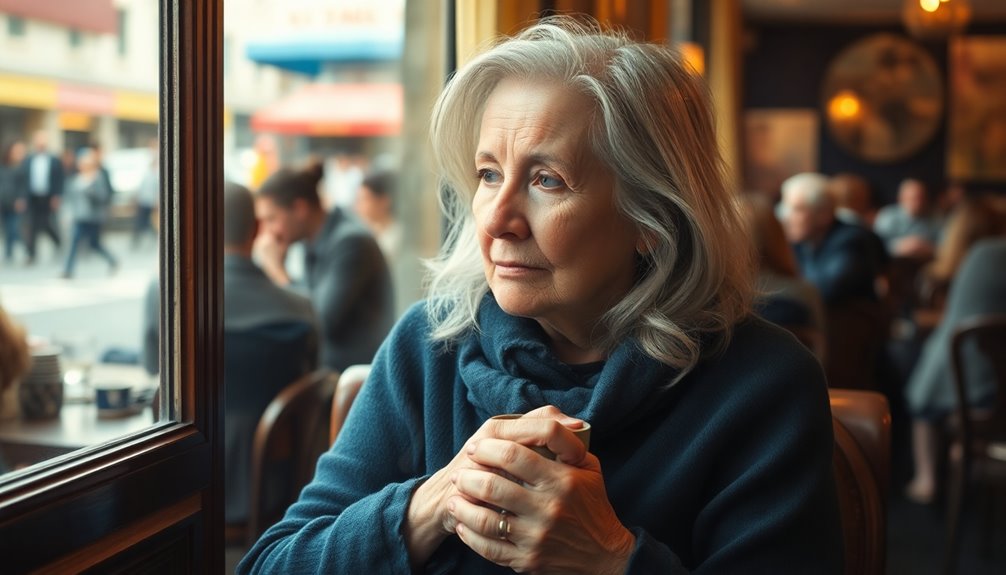
The reasons behind my invisibility often stem from a mix of internal and external pressures. I sometimes feel like I'm fading into the background, and I know I'm not alone in this.
Factors contributing to my invisibility include:
- The fear of losing visibility if I assert myself.
- Younger women often avoiding older women due to their own anxieties about aging.
- My internal struggles with identity and self-worth as I age.
- Social dynamics that push me toward younger peers for validation.
- My tendency to seek younger company, which can unintentionally amplify my own invisibility.
These elements create a complex web that leaves me feeling overlooked, and it's a challenge I navigate daily.
Strategies to Combat Invisibility
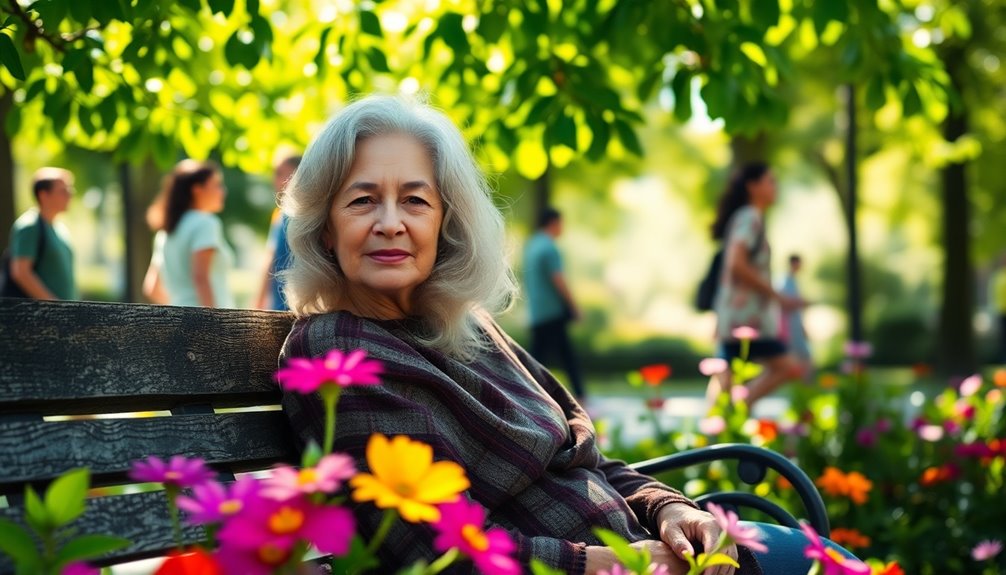
I've found that actively seeking out and acknowledging women of similar or older age helps build that sense of belonging. Forming friendships across age groups enriches my perspective and combats loneliness. Additionally, fostering emotional intelligence in these relationships can deepen the connections we create. Recognizing patterns of behavior in our interactions can also help us navigate and strengthen these connections.
Instead of large gatherings, I prefer small ones where meaningful conversations can flourish. When I introduce myself in social situations, I assert my presence and encourage others to do the same. Developing a structured routine can also enhance our social interactions and provide a sense of emotional stability in these settings.
It's empowering to recognize that my personal agency can spark connections. By embracing these strategies, I can combat feelings of invisibility and create a network of support that uplifts not just me, but other women seeking visibility too. Additionally, engaging in networking events provides opportunities for personal connections that can enhance visibility and support.
Community and Solidarity
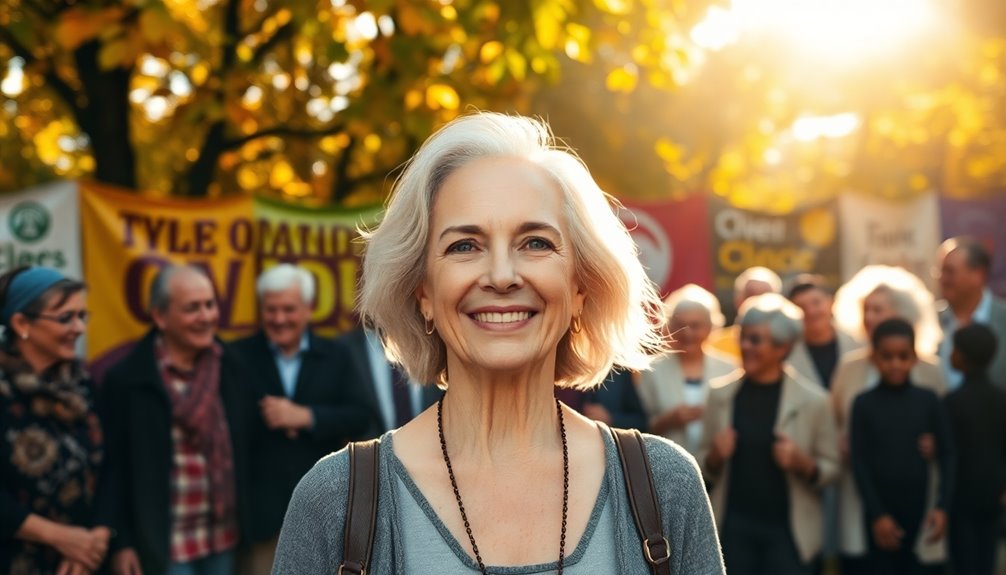
Building a supportive community among women can greatly enhance our sense of visibility and belonging. When we come together, we can uplift one another and combat the feelings of invisibility that often accompany aging.
Here are some ways we can foster this solidarity:
- Share our stories and experiences to create connections.
- Offer mentorship to younger women, sharing our wisdom and insights.
- Organize small gatherings that encourage meaningful conversations.
- Acknowledge and celebrate each other's achievements, big and small.
- Support local initiatives that promote women's visibility and empowerment.
Additionally, prioritizing self-care practices can strengthen our community bonds and improve our overall well-being. Implementing cookie consent management can also enhance our online interactions, allowing us to connect safely and effectively in digital spaces. Embracing holistic approaches to mental and physical well-being can further enrich our community's spirit. Furthermore, participating in community-building activities can foster deeper connections and a sense of belonging among women in our lives. Engaging in dynamic communication exercises can promote open dialogue and strengthen our relationships within the community.
Societal Perceptions and Change
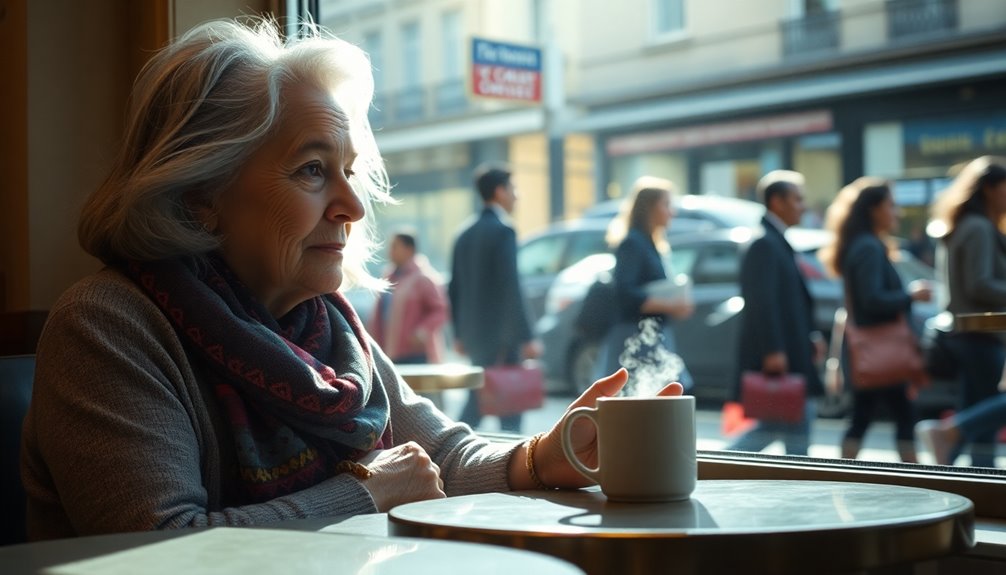
Creating a supportive community among women lays the groundwork for addressing the societal perceptions that often devalue those of us over 50.
I've seen firsthand how these attitudes can make us feel overlooked, as if our worth diminishes with age. Men might see us as "used up," but we recognize our experiences and wisdom hold immense value.
To change this narrative, we must embrace our stories and share them openly. Engaging in conversations about aging helps reshape how society views us.
By fostering connections across generations, we challenge misconceptions and build solidarity.
Let's redefine invisibility, not as a burden, but as a chance for growth and empowerment. Establishing healthy boundaries can also help us communicate our needs and assert our worth in this journey.
Together, we can shift perceptions and reclaim our visibility in a world that needs our voices.
Frequently Asked Questions
How Can Older Women Find Supportive Online Communities?
I've found supportive online communities by joining forums and social media groups focused on shared interests. Engaging in discussions, sharing experiences, and connecting with others my age has greatly enriched my sense of belonging and visibility.
What Role Does Media Play in Portraying Older Women?
Did you know that only 13% of characters in media are women over 50? This lack of representation shapes perceptions, making it vital for us to advocate for more diverse portrayals of older women in all media.
Are There Specific Organizations Advocating for Older Women's Visibility?
I’ve found several organizations advocating for older women’s visibility, like AARP and the National Council of Women. They focus on empowering us, promoting our stories, and ensuring we’re seen and heard in society. These organizations not only work to uplift older women but also actively engage in research to understand and address the unique challenges we face. As we look toward the future, they are examining senior living trends for 2025 to ensure that our needs are met in housing, healthcare, and community engagement. By advocating for inclusive policies and practices, they are paving the way for a more equitable environment where older women can thrive.
How Can Families Support Older Women Feeling Invisible?
In the garden of life, I've felt like a wilting flower. Families can nurture older women by listening, sharing stories, and creating vibrant connections. Let's water those roots together, helping each bloom be seen and celebrated.
What Resources Are Available for Mental Health Support?
I've found various resources for mental health support, like local counseling services, online therapy platforms, and community support groups. It's essential to explore what's available and choose what feels right for you. You're not alone.
Conclusion
As we step into our power, let's turn our invisibility into a shimmering cloak of resilience. Each shared story and supportive conversation stitches us together, weaving a vibrant tapestry of visibility and strength. By embracing our worth and lifting each other up, we can shatter the silence that surrounds us. Together, we'll transform our experiences from whispers into a symphony, ensuring that our voices resonate loudly in a world that desperately needs to hear them.
